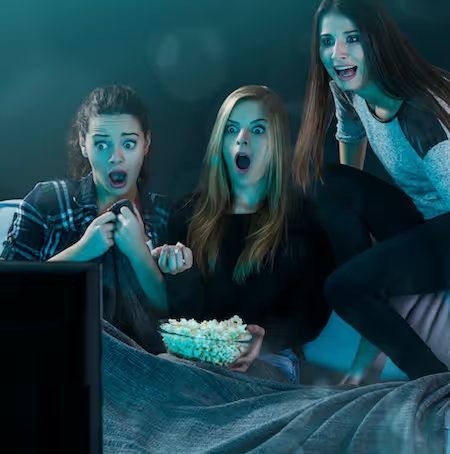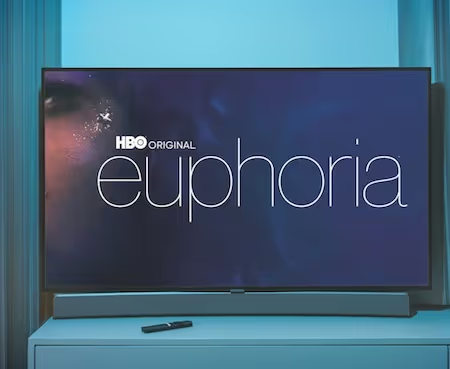


It is with such a heavy heart that I am sharing this piece I wrote again about how to talk to our kids and teens about horrible news. The internet and social media make it essential that we get in front of these conversations quickly.
The American Psychological Association’s guide to talking to your kids about difficult news is quite helpful. They, as do I, encourage parents to share their feelings with their children. It is not about burdening them with one’s anxiety or sadness or other emotions. It is about naming feelings and discussing them. This approach has been shown to be highly effective in helping youth develop greater emotional intelligence.
The APA says “It is OK to acknowledge your feelings with your children. They see you are human. They also get a chance to see that even though you are upset, you can pull yourself together and continue on.”
Psychologists generally say that small children, less than 5 years old, do not need to be told about these types of events. But, young kids now have such easy access to information on devices so we need to be mindful that they might be seeing much more than we know.
For older kids, the APA recommends: “Tell the truth. Lay out the facts at a level they can understand. You do not need to give graphic details.”
I believe it is important that we all make sure kids know how rare these tragedies are. In homes where news is on a lot, or where news alerts are readily visible on screens, youth get an inaccurate perspective of the frequency with which tragedies occur. Yes, bad things happen, but the key is letting our children know that for every negative thing, there are thousands of positive things happening. And, be sure at the end of the conversations that you reassure them that they are safe and that you are there for them to talk further.
We would love for you to share this TTT any way that works for you, whether that’s on social media or via a newsletter. If you want to send it out in your newsletter we just ask that you credit us and link to our website, and let us know at lisa@screenagersmovie.com.
HOST A SCREENING to help spark change.
FIND EVENT LISTINGS
Do you organize professional development in schools? We now have a 6-hour, 3-part training module. Request more information here Professional Development.
Stay in touch with the Screenagers community on Facebook, Twitter and leave comments below.
Learn more about showing our movies in your school or community!
Join Screenagers filmmaker Delaney Ruston MD for our latest Podcast

Learn more about our Screen-Free Sleep campaign at the website!
Our movie made for parents and educators of younger kids
Learn more about showing our movies in your school or community!
Learn more about showing our movies in your school or community!
Join Screenagers filmmaker Delaney Ruston MD for our latest Podcast

Learn more about our Screen-Free Sleep campaign at the website!
Our movie made for parents and educators of younger kids
Join Screenagers filmmaker Delaney Ruston MD for our latest Podcast
As we’re about to celebrate 10 years of Screenagers, we want to hear what’s been most helpful and what you’d like to see next.
Please click here to share your thoughts with us in our community survey. It only takes 5–10 minutes, and everyone who completes it will be entered to win one of five $50 Amazon vouchers.
It is with such a heavy heart that I am sharing this piece I wrote again about how to talk to our kids and teens about horrible news. The internet and social media make it essential that we get in front of these conversations quickly.
The American Psychological Association’s guide to talking to your kids about difficult news is quite helpful. They, as do I, encourage parents to share their feelings with their children. It is not about burdening them with one’s anxiety or sadness or other emotions. It is about naming feelings and discussing them. This approach has been shown to be highly effective in helping youth develop greater emotional intelligence.
The APA says “It is OK to acknowledge your feelings with your children. They see you are human. They also get a chance to see that even though you are upset, you can pull yourself together and continue on.”
Psychologists generally say that small children, less than 5 years old, do not need to be told about these types of events. But, young kids now have such easy access to information on devices so we need to be mindful that they might be seeing much more than we know.
For older kids, the APA recommends: “Tell the truth. Lay out the facts at a level they can understand. You do not need to give graphic details.”
I believe it is important that we all make sure kids know how rare these tragedies are. In homes where news is on a lot, or where news alerts are readily visible on screens, youth get an inaccurate perspective of the frequency with which tragedies occur. Yes, bad things happen, but the key is letting our children know that for every negative thing, there are thousands of positive things happening. And, be sure at the end of the conversations that you reassure them that they are safe and that you are there for them to talk further.
We would love for you to share this TTT any way that works for you, whether that’s on social media or via a newsletter. If you want to send it out in your newsletter we just ask that you credit us and link to our website, and let us know at lisa@screenagersmovie.com.
HOST A SCREENING to help spark change.
FIND EVENT LISTINGS
Do you organize professional development in schools? We now have a 6-hour, 3-part training module. Request more information here Professional Development.
Stay in touch with the Screenagers community on Facebook, Twitter and leave comments below.
Sign up here to receive the weekly Tech Talk Tuesdays newsletter from Screenagers filmmaker Delaney Ruston MD.
We respect your privacy.
It is with such a heavy heart that I am sharing this piece I wrote again about how to talk to our kids and teens about horrible news. The internet and social media make it essential that we get in front of these conversations quickly.
The American Psychological Association’s guide to talking to your kids about difficult news is quite helpful. They, as do I, encourage parents to share their feelings with their children. It is not about burdening them with one’s anxiety or sadness or other emotions. It is about naming feelings and discussing them. This approach has been shown to be highly effective in helping youth develop greater emotional intelligence.
The APA says “It is OK to acknowledge your feelings with your children. They see you are human. They also get a chance to see that even though you are upset, you can pull yourself together and continue on.”
Psychologists generally say that small children, less than 5 years old, do not need to be told about these types of events. But, young kids now have such easy access to information on devices so we need to be mindful that they might be seeing much more than we know.
For older kids, the APA recommends: “Tell the truth. Lay out the facts at a level they can understand. You do not need to give graphic details.”
I believe it is important that we all make sure kids know how rare these tragedies are. In homes where news is on a lot, or where news alerts are readily visible on screens, youth get an inaccurate perspective of the frequency with which tragedies occur. Yes, bad things happen, but the key is letting our children know that for every negative thing, there are thousands of positive things happening. And, be sure at the end of the conversations that you reassure them that they are safe and that you are there for them to talk further.
We would love for you to share this TTT any way that works for you, whether that’s on social media or via a newsletter. If you want to send it out in your newsletter we just ask that you credit us and link to our website, and let us know at lisa@screenagersmovie.com.
HOST A SCREENING to help spark change.
FIND EVENT LISTINGS
Do you organize professional development in schools? We now have a 6-hour, 3-part training module. Request more information here Professional Development.
Stay in touch with the Screenagers community on Facebook, Twitter and leave comments below.

Many young people and adults love horror films and talk about how they love the feeling of being scared. This is so very different from me. I am not at all a fan. This week I have been thinking about ways to talk with kids about when horror in movies, TV shows, and online, in general, go too far.
READ MORE >
The Screenagers’ Tech Talk Tuesday blog from two weeks ago provided four questions for teens to answer regarding the HBO show Euphoria. As intended, the questions sparked conversations among adults and teens, and we got many thoughtful answers from teens in the questionnaire.
READ MORE >
I find HBO’s Euphoria incredibly disturbing and know that although so many of our kids have watched it, many parents never have. Today, I offer a way into a conversation with youth about the show’s topics and popularity.
READ MORE >for more like this, DR. DELANEY RUSTON'S NEW BOOK, PARENTING IN THE SCREEN AGE, IS THE DEFINITIVE GUIDE FOR TODAY’S PARENTS. WITH INSIGHTS ON SCREEN TIME FROM RESEARCHERS, INPUT FROM KIDS & TEENS, THIS BOOK IS PACKED WITH SOLUTIONS FOR HOW TO START AND SUSTAIN PRODUCTIVE FAMILY TALKS ABOUT TECHNOLOGY AND IT’S IMPACT ON OUR MENTAL WELLBEING.
